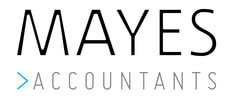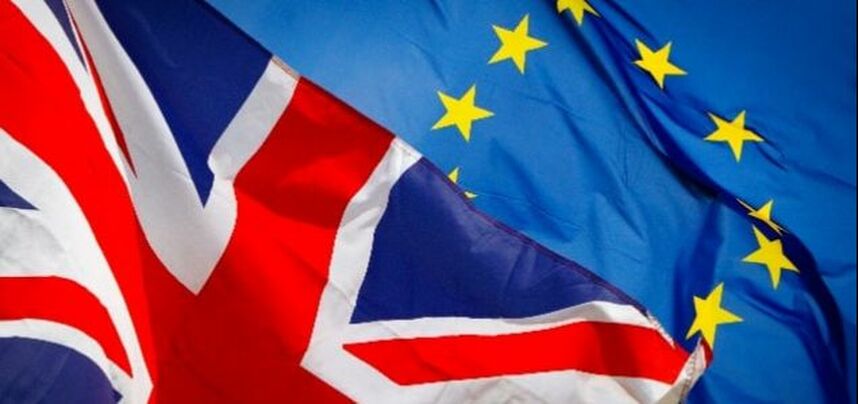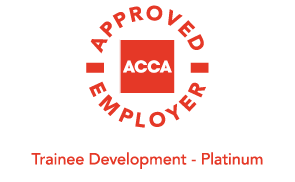BREXIT - WHAT NOW FOR BUSINESSES THAT TRADE WITH THE EU?
Published 14 March 2019
“There is still uncertainty around what Brexit will mean and planning for a “No Deal” scenario seems sensible right now. Businesses that buy and sell from the EU should have contingency plans in place which will need to be flexible to cope with a variety of possible outcomes. If a ‘No Deal’ happens after March 2019 here are some of the areas you should consider.”
MOVEMENT OF GOODS
Customs declarations will need to be made and the UK is implementing a new electronic customs declaration system for businesses, so check if your systems and processes are up to scratch. UK businesses will need a UK Economic Operator Registration and Identification (EORI) number and you can find the forms on the Gov.uk website under the Brexit section.
You may also need an agent to help with import / export declarations as you would for trading outside the EU. Check whether you need additional information from your carrier. Importers can register for Transitional Simplified Procedures (TSP) deferring declarations and paying duty at the border. More on this on page 3, and there is HMRC guidance on the new electronic customs system in the Brexit section on the Gov.uk website.
An essential exercise for all businesses is Supply Chain Mapping - knowing where inputs come from and what product category they fall into can help assess potential tariffs. For businesses that only exported to the EU this will be new and could be time consuming. Further guidance can be found in the “Trade Topics” section of the World Trade Organisation (WTO) website. The EU tariffs can be found at: http://madb.europa.eu/madb/euTariffs.htm
PRODUCT COMPLIANCE
UK product standards and regulations will be aligned to the EU at the point of exit, however in the event of “No Deal” then UK assessment and certification arrangements could cease to be recognised by the EU. See the Brexit section of the Gov.uk website for further guidance.
BUSINESS CONTRACTS AND EMPLOYEES
If you have contracts with EU companies these may need to be redrafted to clarify the terms for trade, including VAT changes. If your business employs EU nationals then they should register for settled status. You will need to track the nationality status of employees going forward to ensure compliance with immigration rules and regulations.
SUMMARY
Whether there is a “No Deal”, a brief delay in the UK’s departure and a “deal” or a longer period of transition we advise all businesses to research all scenarios and “plan for the worst and hope for the best”.
MOVEMENT OF GOODS
Customs declarations will need to be made and the UK is implementing a new electronic customs declaration system for businesses, so check if your systems and processes are up to scratch. UK businesses will need a UK Economic Operator Registration and Identification (EORI) number and you can find the forms on the Gov.uk website under the Brexit section.
You may also need an agent to help with import / export declarations as you would for trading outside the EU. Check whether you need additional information from your carrier. Importers can register for Transitional Simplified Procedures (TSP) deferring declarations and paying duty at the border. More on this on page 3, and there is HMRC guidance on the new electronic customs system in the Brexit section on the Gov.uk website.
An essential exercise for all businesses is Supply Chain Mapping - knowing where inputs come from and what product category they fall into can help assess potential tariffs. For businesses that only exported to the EU this will be new and could be time consuming. Further guidance can be found in the “Trade Topics” section of the World Trade Organisation (WTO) website. The EU tariffs can be found at: http://madb.europa.eu/madb/euTariffs.htm
PRODUCT COMPLIANCE
UK product standards and regulations will be aligned to the EU at the point of exit, however in the event of “No Deal” then UK assessment and certification arrangements could cease to be recognised by the EU. See the Brexit section of the Gov.uk website for further guidance.
BUSINESS CONTRACTS AND EMPLOYEES
If you have contracts with EU companies these may need to be redrafted to clarify the terms for trade, including VAT changes. If your business employs EU nationals then they should register for settled status. You will need to track the nationality status of employees going forward to ensure compliance with immigration rules and regulations.
SUMMARY
Whether there is a “No Deal”, a brief delay in the UK’s departure and a “deal” or a longer period of transition we advise all businesses to research all scenarios and “plan for the worst and hope for the best”.
|
CAPITAL ALLOWANCE ON HIGH C02 CARS AND ASSETS IN SPECIAL RATE POOL REDUCES TO 6% One of the capital allowance changes announced in the Autumn Budget was the reduction of the writing down allowance on assets in the special rate pool from 8% to just 6% per annum reducing balance from April 2019. The assets included in this pool include long life assets, such as aircraft, integral features within buildings and cars emitting more than 110g CO2 per kilometre. |
A claim for the 100% AIA referred to above can be made for expenditure on these assets, (with the exception of motor cars) and this will result in faster tax relief. This means that where a company buys a motor car that emits more than 110g CO2 per km it will take many years to get relief for the expenditure as even when the car is sold the proceeds are deducted from the special rate pool and continue to be written down at 6% reducing balance.
For example Global Ltd which makes up accounts to 31 March each year buys a new Mercedes E220d AMG line for the managing director Mr Global for £40,000. As the CO2 emissions are 127g per km the WDA would be 8% for year ended 31 March 2019 = £3,200 leaving a tax written down value of £36,800. The 6% WDA would then apply for year ended 31 March 2020 = £2,208 leaving £34,592. If the car was sold for £25,000 in the following year then the remaining balance of £9,592 would continue to be written down at 6% per annum, hence a very long write off period.
It may be more tax efficient to lease such a vehicle as, although 15% of the lease rentals are disallowed for tax purposes for such high CO2 vehicles, this may nevertheless be more beneficial.
Note that the above rules operate differently where the motor car is acquired by a sole trader or a partner for his business as the car is not included in the pool and a balancing adjustment occurs when the car is sold.
SIMPLIFIED IMPORT PROCEDURES IN THE EVENT OF A "NO DEAL"
Arrangements have been announced by the government regarding the movement of goods to and from the EU. A simplified import and export system has been implemented by HMRC - in the event of a ‘no deal’ scenario - as a mechanism to ensure that goods move to and from the UK, with a reduced administrative burden for businesses, in terms of the documentation required at the port of entry and exit.
It is intended to make it easier for businesses who import from the EU using roll on roll off (RO-RO) facilities. This development will be of interest to any businesses involved in intra-EU trade. In particular, those businesses whose goods arrive and depart from one of the UK’s RO-RO locations for example, Dover or the Channel Tunnel.
Businesses need to consider whether they wish to make use of this provision. HMRC has advised that businesses will need to register to use Transitional Simplified Procedures (TSP), this can be done from 7th February 2019 via the following link: www.gov.uk/hmrc/eu-simple-importing
These transitional simplified procedures reduce the amount of information you need to give in an import declaration when the goods are crossing the border. They do this by allowing you to defer giving a full declaration and paying the relevant customs duty.
TERMINATION PAYMENT CHANGES DELAYED TO 2020
HMRC have announced that the changes to the national insurance (NIC) treatment of termination payments and sporting testimonials have been delayed to 6 April 2020. From 6 April 2020 Employer class 1A NIC will become payable on termination payments in excess of £30,000 and on sporting testimonials that exceed £100,000 (lifetime limit). The changes are intended to align the NIC treatment with the treatment for income tax although there is no NIC liability for the employee on such payments. Whether or not the £30,000 exemption applies on termination of employment is a complex area and specialist advice should be obtained.
DIARY OF MAIN EVENTS
Date
What's Due
01/04/2019
- MTD for VAT starts - VAT returns for return periods commencing on or after 1 April must be filed electronically (unless deferment applies)
- Corporation tax for year to 30/06/2018 (unless quarterly instalments apply)
06/04/2019
2019/20 tax year begins
19/04/2019
- Final RTI FPS due by this date. Indicate that this is Final Submission for the Tax Year
- PAYE & NIC deductions, and CIS return and tax, for month to 05/04/19 (due 22/04 if you pay electronically)
01/05/2019
Corporation tax for year to 31/07/18 (unless quarterly instalments apply)
19/05/2019
PAYE & NIC deductions, and CIS return and tax, for month to 05/05/19 (due 22/05 if you pay electronically)
01/06/2019
Corporation tax for year to 31/08/2018 (unless quarterly instalments apply)
19/06/2019
PAYE & NIC deductions, and CIS return and tax, for month to 05/06/19 (due 22/06 if you pay electronically)
For example Global Ltd which makes up accounts to 31 March each year buys a new Mercedes E220d AMG line for the managing director Mr Global for £40,000. As the CO2 emissions are 127g per km the WDA would be 8% for year ended 31 March 2019 = £3,200 leaving a tax written down value of £36,800. The 6% WDA would then apply for year ended 31 March 2020 = £2,208 leaving £34,592. If the car was sold for £25,000 in the following year then the remaining balance of £9,592 would continue to be written down at 6% per annum, hence a very long write off period.
It may be more tax efficient to lease such a vehicle as, although 15% of the lease rentals are disallowed for tax purposes for such high CO2 vehicles, this may nevertheless be more beneficial.
Note that the above rules operate differently where the motor car is acquired by a sole trader or a partner for his business as the car is not included in the pool and a balancing adjustment occurs when the car is sold.
SIMPLIFIED IMPORT PROCEDURES IN THE EVENT OF A "NO DEAL"
Arrangements have been announced by the government regarding the movement of goods to and from the EU. A simplified import and export system has been implemented by HMRC - in the event of a ‘no deal’ scenario - as a mechanism to ensure that goods move to and from the UK, with a reduced administrative burden for businesses, in terms of the documentation required at the port of entry and exit.
It is intended to make it easier for businesses who import from the EU using roll on roll off (RO-RO) facilities. This development will be of interest to any businesses involved in intra-EU trade. In particular, those businesses whose goods arrive and depart from one of the UK’s RO-RO locations for example, Dover or the Channel Tunnel.
Businesses need to consider whether they wish to make use of this provision. HMRC has advised that businesses will need to register to use Transitional Simplified Procedures (TSP), this can be done from 7th February 2019 via the following link: www.gov.uk/hmrc/eu-simple-importing
These transitional simplified procedures reduce the amount of information you need to give in an import declaration when the goods are crossing the border. They do this by allowing you to defer giving a full declaration and paying the relevant customs duty.
TERMINATION PAYMENT CHANGES DELAYED TO 2020
HMRC have announced that the changes to the national insurance (NIC) treatment of termination payments and sporting testimonials have been delayed to 6 April 2020. From 6 April 2020 Employer class 1A NIC will become payable on termination payments in excess of £30,000 and on sporting testimonials that exceed £100,000 (lifetime limit). The changes are intended to align the NIC treatment with the treatment for income tax although there is no NIC liability for the employee on such payments. Whether or not the £30,000 exemption applies on termination of employment is a complex area and specialist advice should be obtained.
DIARY OF MAIN EVENTS
Date
What's Due
01/04/2019
- MTD for VAT starts - VAT returns for return periods commencing on or after 1 April must be filed electronically (unless deferment applies)
- Corporation tax for year to 30/06/2018 (unless quarterly instalments apply)
06/04/2019
2019/20 tax year begins
19/04/2019
- Final RTI FPS due by this date. Indicate that this is Final Submission for the Tax Year
- PAYE & NIC deductions, and CIS return and tax, for month to 05/04/19 (due 22/04 if you pay electronically)
01/05/2019
Corporation tax for year to 31/07/18 (unless quarterly instalments apply)
19/05/2019
PAYE & NIC deductions, and CIS return and tax, for month to 05/05/19 (due 22/05 if you pay electronically)
01/06/2019
Corporation tax for year to 31/08/2018 (unless quarterly instalments apply)
19/06/2019
PAYE & NIC deductions, and CIS return and tax, for month to 05/06/19 (due 22/06 if you pay electronically)
Location |
Registered as Auditors and regulated for a range of investment business activities in the United Kingdom by the Association of Chartered Certified Accountants Copyright@2018 Mayes Business Partnership Ltd 1974-2024
|









